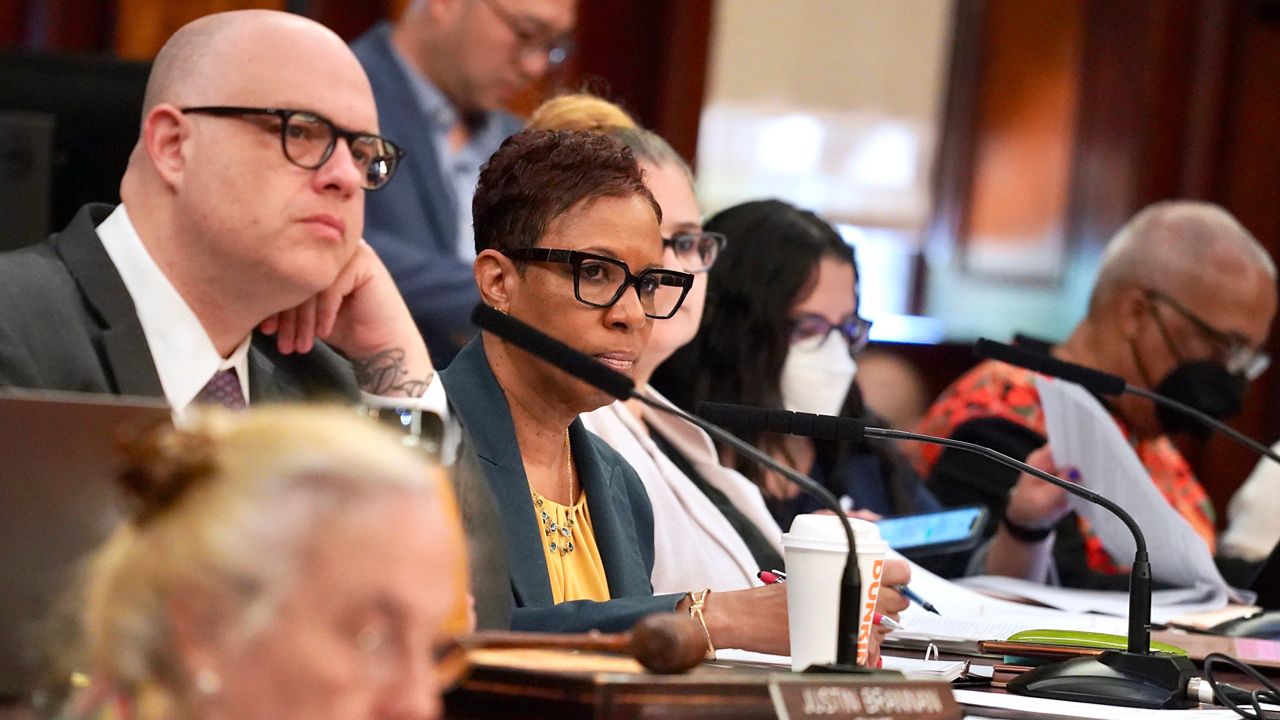The city’s social services commissioner pushed back on criticism of Mayor Eric Adams’ plan to move hundreds of asylum seekers to suburban hotels at a City Council hearing Monday, responding to suggestions from political leaders in those areas that Adams was pawning off the city’s migrant crisis on their counties.
“This is not an abdication of city responsibility,” Molly Wasow Park, the commissioner for the Department of Social Services, said at a budget hearing. “This is an attempt by New York City to look for opportunities that go beyond the physical boundaries of New York City, but without relinquishing our responsibility to care for these individuals.”
Adams’ plan to house hundreds of asylum seekers — all single men who would volunteer to leave shelter placements in the city — in hotels in Rockland and Orange counties is a response to an ongoing influx of migrants arriving in the city, Park said.
In recent months, the city has often seen 200 migrants coming into the city from immigration centers on the southern border each day, according to Park. Last week, she said, there were several days when that tally surpassed 500, and the city is expecting the number of arrivals to grow when the federal government officially ends the COVID-19 public health emergency on May 11.
The city, which has tapped more than a dozen agencies to manage various emergency migrant shelters, is looking for places to house migrants wherever it can, Park said.
“Nothing is off the table,” she said.
Council members acknowledged the emergency nature of the administration’s response to the influx of migrants, but expressed concern that the administration was not notifying them about new emergency shelter sites in their districts or following relevant laws.
On Monday, The Daily News reported that the city had housed several families with children in a disused police training facility in Manhattan, in an apparent violation of city rules that prohibit housing children in congregate shelter settings.
“I’m sure there is vacant city space,” Councilman Justin Brannan, the finance committee chair, said of the administration’s efforts to find shelter locations on city-owned sites. “It doesn't mean it would make sense to house human beings.”
Park said that the families at the old training academy would be moved within 48 hours, and that it was only being used as “overflow” space when the city sees a spike in newly arrived migrants.
The administration has set the social services department’s budget for the coming fiscal year at $11 billion, including $8.9 billion in city-provided funds, a $200 million drop in city-provided funding from the current fiscal year, even as the budget increased from the initial budget proposal in January.
The department will have about 350 fewer city-funded positions in the next fiscal year, Park said.
Council members said they worried that declines in funding and budgeted headcount for the agency would hamper the city’s ability to provide key social services without extensive delays, such as processing food stamp benefits and housing vouchers. At an April hearing, city officials said that they were processing only half of SNAP grocery assistance benefits within 30 days.
Park said she believes the staffing reduction’s impact on services will be “relatively minor.”
Park also faced questioning over the amount the administration estimates it will spend on food, shelter, education and legal assistance for asylum seekers.
The latest budget documents project that the city will spend $4.3 billion in the current and upcoming fiscal years. Yet in a report released Monday, the Independent Budget Office, a city-funded agency, estimated that even a worst-case scenario would cost the city $600 million less than that over the same time period.
Park said the city’s estimates were accurate and were based on projections of rising numbers of migrants, as well as rising costs of providing legally mandated services.
Since many migrants are housed in hotels instead of homeless shelters, the average per diem cost for each migrant is $256, while the city pays on average $136 per day for homeless single adults. While the city is planning to open 90 permanent homeless shelters over the next 10 years, it has already created 126 emergency shelter sites for migrants since June of last year.
“We are incurring costs in very real time,” Park said. “We have fully exhausted the normal resources of our system.”



